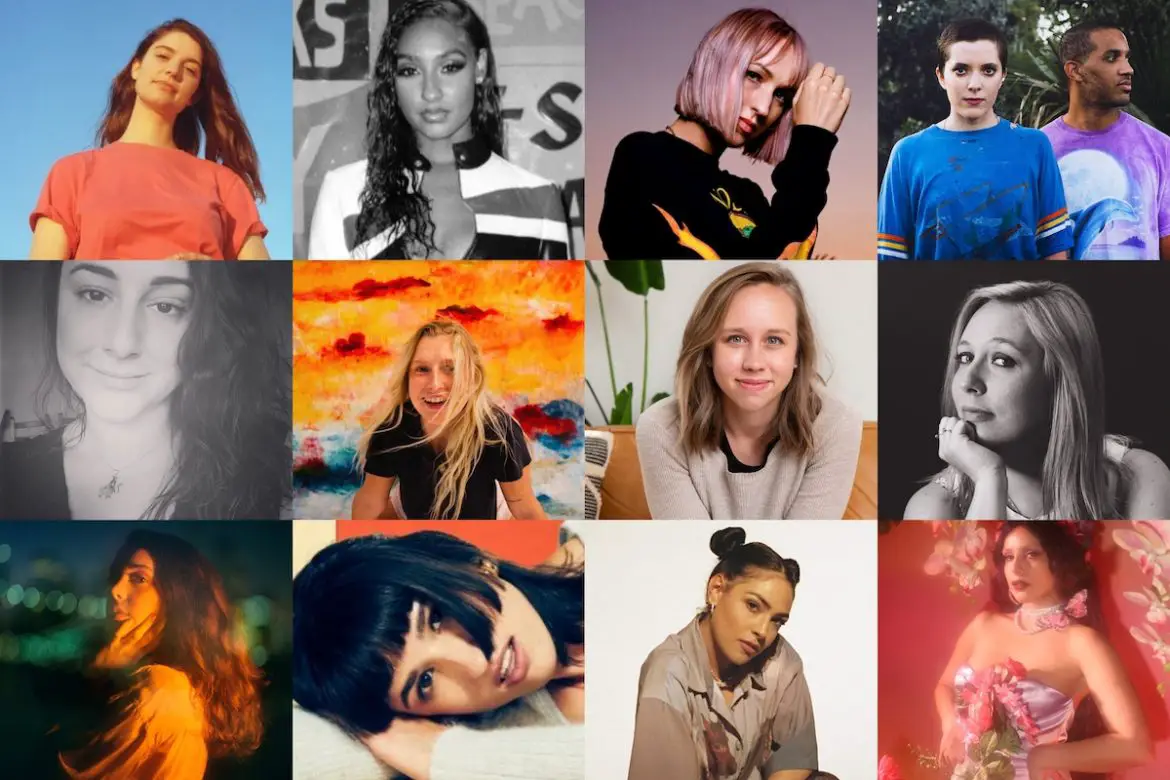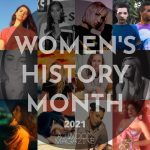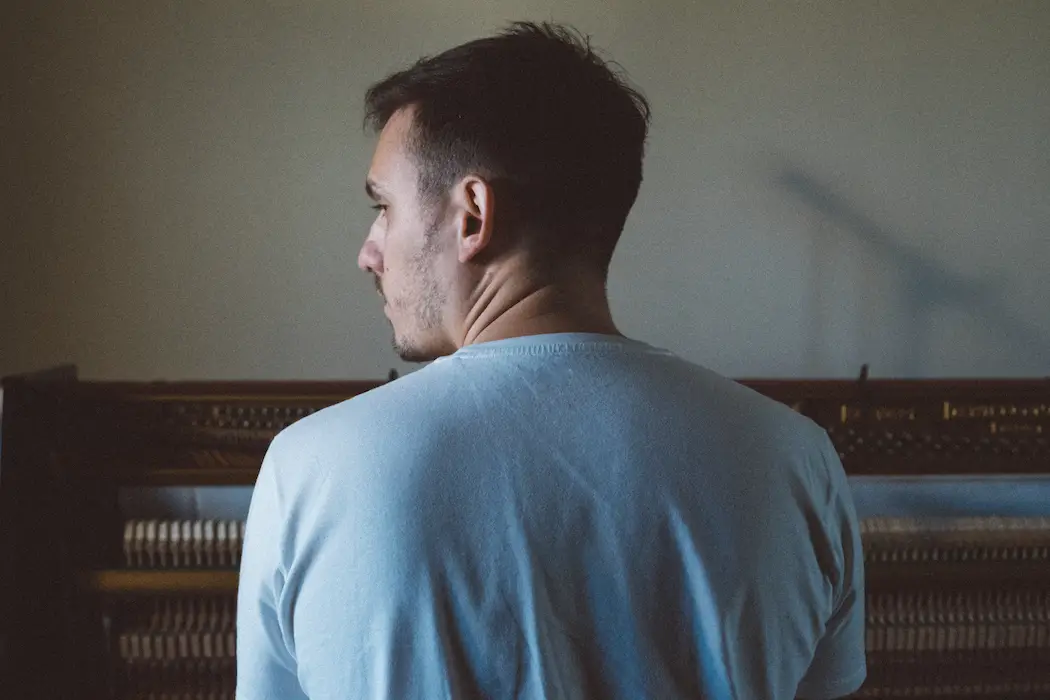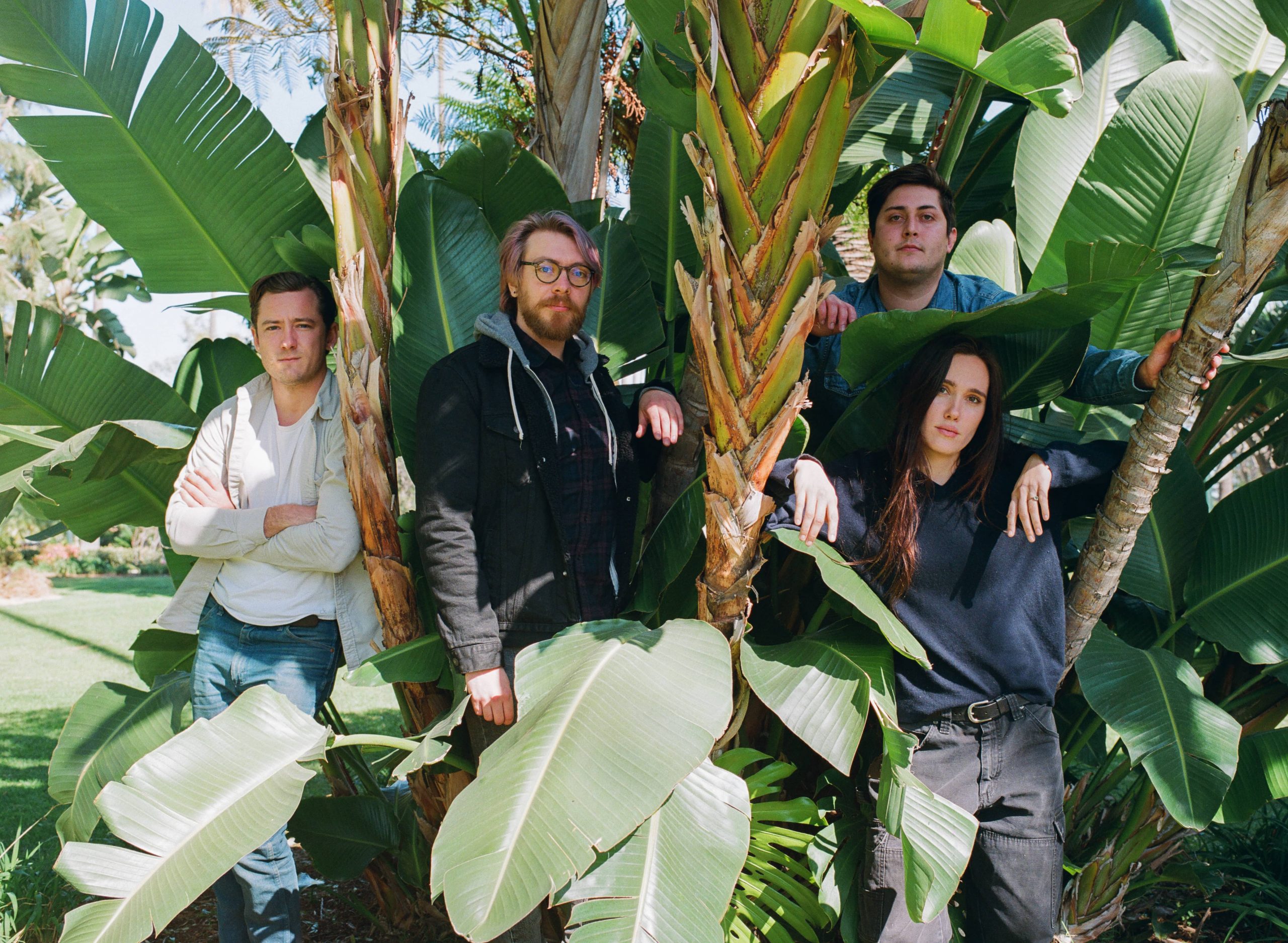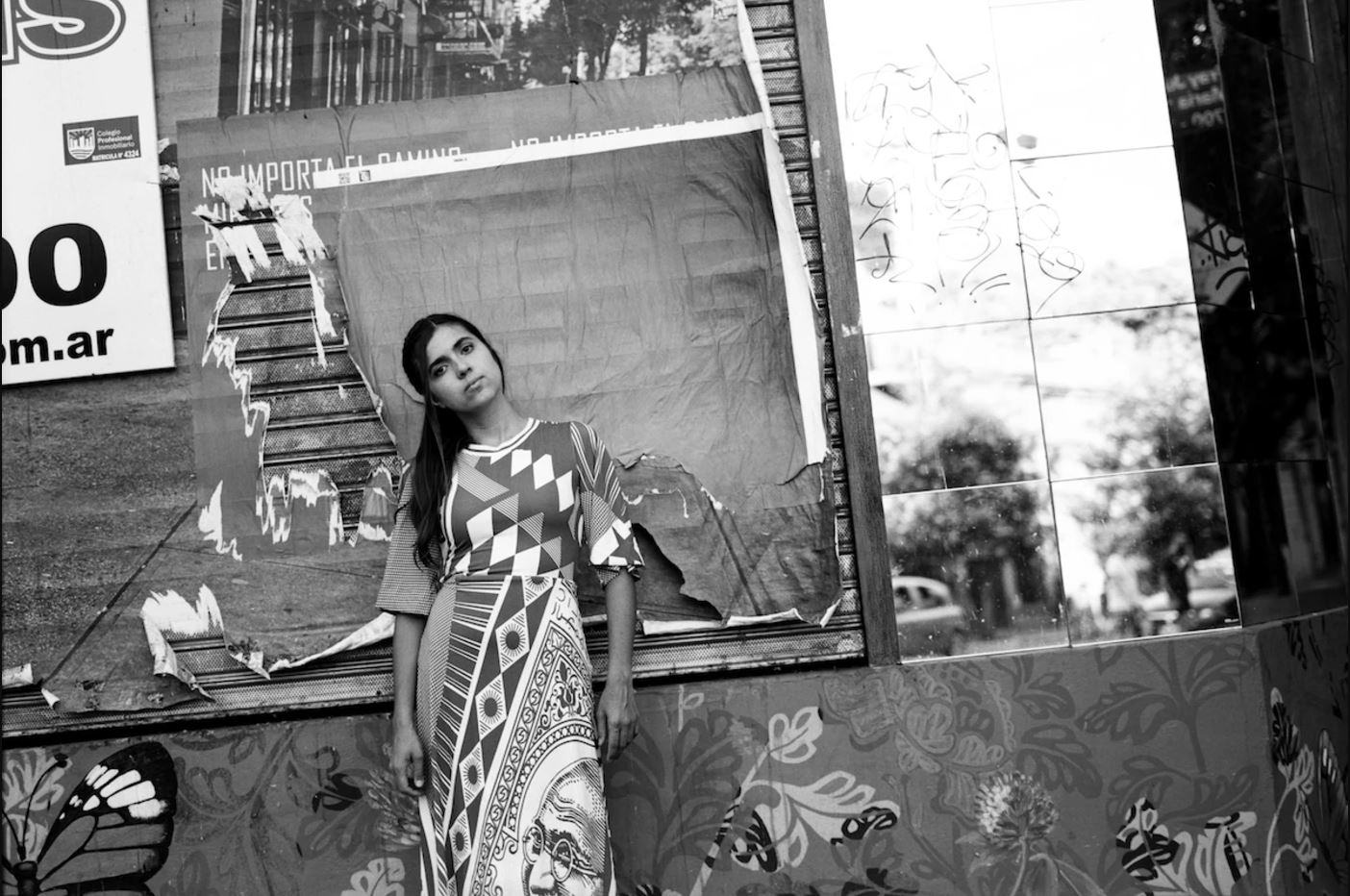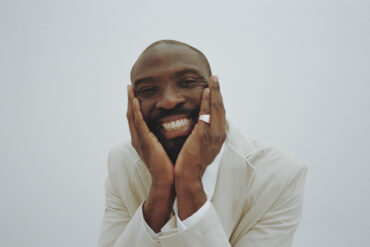Just as the pandemic began in 2020, a wave of protest and calls for equity were the anthems of the year, leading to important conversations surrounding inclusivity and equitable treatment for LGBTQ+ communities, BIPOC communities, and women. Intersectionality must be front and center in these conversations, and those conversations must continue into 2021. Today, and throughout the month of March, Atwood Magazine will be continuing those conversations in celebration of Women’s History Month — including artists and publicists alike discussing the state of the music industry and its role in gender equity.
In Part I of our series, Atwood spoke with and highlighted 12 women in the industry, asking them to reflect on the ways misogyny can be combatted, how they perceive their place in the industry, and how we can choose to challenge the music industry for better representation.
– Adrian Vargas, Managing Editor
– Mariel Fechik, Junior Editor
•• •• •• ••
Claire Givens (People Museum), Nisa, Carmen DeLeon, Juliana Todeschi (Crown Jül), Quelle Rox, Kito, Feather, Leigh Greaney (Big Hassle), Billie Marten, Rozzi, Ainsley Wagoner (Silverware), Dawn Jones (Pressed PR)
•• ••
:: Atwood Magazine Celebrates Women ::
 follow our Women’s History Month playlist on Spotify
follow our Women’s History Month playlist on Spotify 
:: Claire Givens (People Museum) ::

What kind of space do you want to carve out for yourself as a woman in this industry?
Something I struggled with the most early in making music was taking ownership of the things I contributed to my band and other musicians’ music. I would make it an afterthought to say “I wrote these lyrics and melody and I wrote those instrumentals”. I think as women, we are taught to shrink ourselves or that it’s wrong to promote yourself, but when I see other women writing massive songs and composing for other people and being unapologetic about it, it truly ignites me so I want to inspire that same fire. I want to work with many different kinds of people in many different aspects of the music world, so I let it be known what I’ve contributed to and make sure I’m always credited for my songwriting.
Misogyny can be so insidious in the music world. What are some ways you've been able to combat it and what kind of advice would you offer to women who are just coming into the industry?
Like many fellow women musicians, I’ve often been mistaken as the girlfriend of the band rather than someone who runs the band and get ignored or talked down to. I would hold in my anger and let it affect my performances or be combative towards that person. I’ve learned over time that I had to take initiative and put myself in the forefront, introduce myself first and try to block that misogyny myself. I would say to other women, take up space and don’t shrink to people who are in power or “in charge”. It’s the performer’s stage and you deserve respect and a chance to share your art.
How would you challenge the music industry in order to increase meaningful representation and provide better support for women?
I want to see more women inside clubs running sound and running lights, so I challenge the industry to make ways for women to learn these skills and do so in a safe and healthy environment. I think there should always be some in a club holding people accountable and protecting its workers and performers as well.
Lastly, what are you working on currently? Anything coming down the pipeline you’re excited to share with fans?
My band People Museum is releasing our EP “I Could Only See Night” on April 9th along with a beautiful music video which is out now made in collaboration with fellow women collaborators including director Riley Teahan.
:: Nisa ::

What kind of space do you want to carve out for yourself as a woman in this industry?
I hope to play a part in uplifting other women and marginalized/diverse genders by helping make space for them to feel more welcome as an essential part of the industry. I personally really want to express how fun genre fluidity can be if we give it a chance.
Misogyny can be so insidious in the music world. What are some ways you've been able to combat it and what kind of advice would you offer to women who are just coming into the industry?
I’ve found that reaching out to others in your position (or those you aspire to work alongside) can be really inspiring as well as community-building. Having a safety network anywhere is important, but its especially reaffirming if you’re entering an industry like this where there’s lots of codes and conventions regarding gender that you probably want to break from or subvert.
How would you challenge the music industry in order to increase meaningful representation and provide better support for women?
I would challenge labels to practice what they preach—demonstrate transparency rather than hiding from the past and seek out representation in your staff as well as your artists. I’ve heard a lot of unsettling stories in the past year about repeat offenders across multiple genres being protected at the expense of the health and safety of the women they’ve hurt. I think that the resulting silence from some has been deafening, and it indicates one of the many ways that the industry’s deep-rooted misogyny is perpetuated.
Lastly, what are you working on currently? Anything coming down the pipeline you’re excited to share with fans?
I’m currently recording my next project here in Brooklyn, which I’m stoked to share sometime later this year!
:: Carmen DeLeon ::

What kind of space do you want to carve out for yourself as a woman in this industry?
Independent.
Misogyny can be so insidious in the music world. What are some ways you've been able to combat it and what kind of advice would you offer to women who are just coming into the industry?
Never let anyone make you inferior.
Lastly, what are you working on currently? Anything coming down the pipeline you’re excited to share with fans?
My English records.
:: Juliana Todeschi, Owner and Founder, Crown Jül ::

What kind of space do you want to carve out for yourself as a woman in this industry?
I’ve always been inspired by women who lead and set out to become one myself. It would be wonderful to get the industry to a point where sexism doesn’t exist at every turn, but we still have a long way to go.
I want to carve out a space that’s nurturing, empowering, and respectful of the fact people have lives outside of their jobs! So far, those are the values I embody in the ethos of my business.
Misogyny can be so insidious in the music world. What are some ways you've been able to combat it and what kind of advice would you offer to women who are just coming into the industry?
To be frank, it’s taken my YEARS to get to a place where I feel comfortable standing up for myself when I’m met with misogynistic double standards. Now that I have a handle on it and feel confident in both what I have to offer and my instinct of when I’m being disrespected because of my gender, I call it out directly and stand firm in my interpretation. I’d be lying if I said it doesn’t activate my nervous system, but I feel more confident in knowing I’m doing what’s best for me and commanding the respect I have earned.
As for actively combating it, I try to instill these same values into my teammates and speak openly about these issues whenever given the chance. I communicate with other female-identifying colleagues in the business and seek their advice whenever I’m not quite sure how to handle something myself. Additionally, I speak openly and frankly about it with male counterparts I know respect me and my position, and they affirm my experience of the situation. It’s important to bring general awareness to the fact this is still happening even with all of the progress that’s been made.
My advice is to seek female mentors who can support you in how to navigate the rampant sexism that still takes place. They’ve already walked through the fire and have wisdom in how to navigate it. I also think women should feel empowered to be less apologetic. Normalize matching your tone to the tone of your male colleagues in email correspondences. Be steadfast in your values and hold others to a standard of mutual respect. You must command respect; it’s not always going to be given because you do a good job. It’s never worked like that for women in the workplace.
How would you challenge the music industry in order to increase meaningful representation and provide better support for women?
I think one huge place to start is to rid the industry of free, unpaid internships. They perpetuate the systems of oppression the industry is built off of. Not everyone can afford to work for free, and so the pool of applicants is reduced inherently to those privileged enough to afford to be able to do so.
Equal pay and competitive family leave policies that allow women to work and become mothers (if they wish) would be a great start toward better support for women in the business. On average, we’re still earning 80% of what a male counterpart earns for the same job, and generally speaking, we’re performing better. Speak openly about your salaries with your colleagues and when a pay discrepancy comes to light, go to management together to call it out and question why it exists. Stand together.
And if you see sexism happening–whether it be sexual harassment, assault, or one of the other covert ways it manifests–call it out and support that person in their experience; validate it. Normalize that this behavior is not okay and should no longer be tolerated.
:: Quelle Rox ::

What kind of space do you want to carve out for yourself as a woman in this industry?
A space where I can be free with my art, having 100% stake ALWAYS in my vision– not compromised and free-flowing in whatever direction feels right in the moment. As a Latina, it’s also important for me to infuse my culture and language in my music, in a genre that I believe needs more representation. And above all, I don’t want to be looked at as a “woman music producer,” I just want to be Quelle Rox: a singer, songwriter, and producer who makes dope dreamy bops haha.
Misogyny can be so insidious in the music world. What are some ways you've been able to combat it and what kind of advice would you offer to women who are just coming into the industry?
I’ve run into a lot of situations where people get offended by my own opinion, whereas a man would be applauded and labeled bold or a leader if he said the same things. To be honest, I shut that down immediately. There is a zero-tolerance policy for misogyny.
A while back, I had a man in my band who tried to push back and not respect me as a leader of my own art, and I immediately dropped them. There is no time in this world, especially in the art world, to be surrounded by people who don’t treat others as equals, all across the board.
My advice would be— if you feel uncomfortable by a situation or feel you are being treated differently than others, your feelings are 100% valid. Take action and distance yourself as far away from those people as possible. Always be mindful of the bullshit and protect your art and your energetic space!
How would you challenge the music industry in order to increase meaningful representation and provide better support for women?
I think the music industry can start by having more women leaders within the infrastructure of the labels and business side. I think that inclusivity and perspective can help transcend into a shift in those same people advocating for women on the creative side, and help to provide more opportunities for inclusivity by removing the disparity between women’s representation at the tippity top of the hierarchal chain.
I also think there needs to be a collective mindset shift— not everyone, but there are lots of people who think women aren’t as good as men musically, from music production to playing instruments, etc. That is simply untrue! There are so many talented women in music doing it ALL. The questions like: “did you really produce that yourself” or simply offering condescending, unsolicited advice to women doing their thing, NEED to end today— I’m officially making that declaration!
Lastly, what are you working on currently? Anything coming down the pipeline you’re excited to share with fans?
My track “No Surprises” just dropped recently on 3/2. My next track “Waves” comes out 4/6 and finally, my EP “Lilac Rush” comes out 4/23. It will be dropped with a three-piece visual storybook directed by Kelli McGuire. It takes you on a galactic journey and I’m super excited for it to be out in the universe!
:: Kito ::

What kind of space do you want to carve out for yourself as a woman in this industry?
Just to be seen as a great producer, without the “female producer” tag.
Misogyny can be so insidious in the music world. What are some ways you've been able to combat it and what kind of advice would you offer to women who are just coming into the industry?
By working hard, trusting my self-worth, and persistence. If you work hard and create stuff that’s undeniably good, people can’t ignore it.
How would you challenge the music industry in order to increase meaningful representation and provide better support for women?
Everyone needs to be checking themselves at all levels. Make sure you’re lifting up those around you. Eliminate the pay gap! It definitely is a thing in music.
Lastly, what are you working on currently? Anything coming down the pipeline you’re excited to share with fans?
I just spent a week in Mammoth with a bunch of friends writing music and I’m really excited to get that finished and out into the world! Also, check out my latest tune “Recap” with VanJess & Channel Tres.
:: Feather ::

What kind of space do you want to carve out for yourself as a woman in this industry?
I’m really big on not putting myself in a box, I would say versatility! I want to be instrumental in showing that women are well equipped and able to do more. I pride myself on being able to use multiple talents to showcase my art and creativity.
Misogyny can be so insidious in the music world. What are some ways you've been able to combat it and what kind of advice would you offer to women who are just coming into the industry?
It is absolutely a challenging thing to deal with and very unfortunate. However, I’m grateful I’ve been able to see a woman, Ethiopia Habtemariam, rise up against the odds and show us women that it can be done. It’s been vital in shaping my mentality while in the music industry. The advice I would offer to women coming into the world of music is to persevere past every doubt you may have or people around you may have. This can honestly be applied to any situation in life.
How would you challenge the music industry in order to increase meaningful representation and provide better support for women?
I would challenge them to continue to hire and promote black women executives. One of the main reasons I signed to Motown because it was run by a black woman and since signing, she’s been promoted to chairman. Yet, women overall are underrepresented in leadership roles within the music industry.
Lastly, what are you working on currently? Anything coming down the pipeline you’re excited to share with fans?
I’m so EXCITED!! I’m currently working on my project and getting visuals done. My debut single “Juke” has just been released. It’s been a very fun process so far and I can’t wait to share it with all my supporters!
:: Leigh Greaney, Senior Publicist / Account Executive, Big Hassle ::

What kind of space do you want to carve out for yourself as a woman in this industry?
I want a piece of the same pie that men get. I don’t want a piece of the “women’s pie” or the “queer women’s” pie. Would love a piece of that, too, but I also want the MAIN PIE, extra whipped cream. Imagine seeing “male artist” in a piece of music journalism. You’ll have to imagine because it doesn’t happen. Men are not given “male press” looks — in fashion, yes — but, not in mainstream music coverage.
I don’t want to be tokenized or fetishized because of my gender identity (or sexual identity) and I sure as hell don’t want the artists on my roster to be, either. I’m proud to be a woman and I’m proud to be a publicist but I’m not a “woman publicist.” There is a difference.
I’m a creative, intuitive, passionate, enthusiastic, committed, honest, respectful and loving woman AND publicist. The “and” changes everything. I’m not defined by my gender when it comes to my career and my talent doesn’t fit into a woman-sized box. The same goes for the artists I work with, who are proud of who they are as women and who know they deserve a giant serving of credibility and visibility because of their art — not what’s between their legs.
This means that women deserve to embody the pride we have in ourselves as whole beings. I want to see a future where we’re celebrated because of the adjectives that define us that include, but are not limited to “female,” “feminine,” “woman,” etc. We contain multitudes that expand beyond our pronouns.
Misogyny can be so insidious in the music world. What are some ways you've been able to combat it and what kind of advice would you offer to women who are just coming into the industry?
I highly recommend voting with your feet and always stepping into your power. If you’re not being treated with respect, leave. Can you try to fix the situation and use your voice? Always, but, your career should never feel like a hostage situation, where you’re constantly protecting your passion for music at the expense of your mental health. Your self-worth must be paramount and if you value yourself, others will follow or lose access to you. It starts with you. There’s no opportunity that is worth more than your dignity. Ever. Period.
You get to define your boundaries internally and then it’s up to you to make sure those needs are communicated and agreed upon, just like any relationship. If agreements are broken, or trust is lost, then the relationship is toxic and a poisoned plant cannot grow. You deserve to grow and thrive. Your career deserves to be nurtured with collaboration and gratitude that goes both ways. It can be hard to take a stand. It can be even harder to walk away after the needs you have voiced are refused, but that’s the best you can do for yourself, your career and for the industry at-large.
Tolerating toxic behavior is a permission slip for more of the same. There are always more opportunities out there and your creativity and value are limitless. Please remember that, and reach out to people in your life who support you. Know you’re never alone and know the darkness is temporary. Never let a weak man (or woman) define you by your gender. You’re magic on legs and don’t you forget it.
How would you challenge the music industry in order to increase meaningful representation and provide better support for women?
First of all, I’m changing it right now by answering these questions and you’re changing it right now by asking. I know I’m changing the industry just by being in it, as are the writers I work with and the artists I represent. There’s a reason most of my roster is women; I choose them because I believe in their art AND because they’re female-identifying. Not a day goes by that I’m not reminded of the fact that 2 percent of producers are women. 2 percent. Why?
Shedding light on a problem and asking questions is the only way to fix it. Then, it’s all about action. Choosing women by hiring women, recommending women, and sharing women’s stories are all actions that create change. Communication, consistency, collaboration and compassion are the tools for transformation but they do nothing sitting on the floor.
So, we must all take a stand in the intention of change, not the intention of validation. Performative action is glaring and toxic. So, if it’s not coming from a place of love for women and from gratitude, don’t do it. We don’t need fake friends. We need real love because that’s what we put into our work and that’s what we deserve.
:: Billie Marten ::

What kind of space do you want to carve out for yourself as a woman in this industry?
I’d like to carve the same space as anyone else, man, woman, or otherwise, with what I thought was a strong love of music and all that comes with it. I’d like to erase the idea of “woman” meaning disadvantaged and marginalised.
Misogyny can be so insidious in the music world. What are some ways you've been able to combat it and what kind of advice would you offer to women who are just coming into the industry?
Unfortunately, it can. However, I’ve had no direct horrible experiences, only the low-level everyday sexism that crosses all industries. It’s a sad affair and often too minimal to comment upon, but in the moment you have to force yourself to speak up and remember that you *do* know what you’re doing and that you *can* be both humble and bold without being ‘loud’, ‘rude’, or ‘too outspoken’. – Attributes a non-female would not have to worry about. The road to eradicating imposter syndrome is a long one and I’m figuring that out myself daily. The futuristic goal is to acknowledge and respect but ultimately forget gender within music so we can all continue and focus on the art, without these issues that make us regress.
How would you challenge the music industry in order to increase meaningful representation and provide better support for women?
I talk about this on a daily basis with my female musician mates, there are so many things I wish I knew at the start and so many situations I would’ve been able to handle better had I known what I do now. I’ve had a relatively smooth run but there are always moments I’ve looked back and not been happy. It would be great to have had more female figures making all the important decisions. I’ve always said, much like in any other line of work, there needs to be a preliminary educative support system for people entering music; a teething period so to speak whilst you find your feet and begin to understand who you are musically – and quite often as you’re deciding who you are personally, artists are so young nowadays they aren’t given the time to discover these things yet treated like fully functioning working adults.
The system would involve a hands-on approach and a breakdown of all things practical ie. explaining job titles, your rights as a musician, legal and financial education, how to read between the lines and take everything with an enormous bucket of salt, etc. All the important things you sadly only achieve through hindsight. In an ideal world that would be what I’d like to see so things don’t get so overlooked.
Lastly, what are you working on currently? Anything coming down the pipeline you’re excited to share with fans?
I’m just about to release my third album Flora Fauna, on Fiction records – coming 21st May.
:: Rozzi ::

What kind of space do you want to carve out for yourself as a woman in this industry?
I really just want to make women feel powerful. I want to make music that makes them feel understood, strong in their vulnerability, sexy, and comfortable in their own skin. And I want to me the album people go to if they want to hear some SINGING!
Misogyny can be so insidious in the music world. What are some ways you've been able to combat it and what kind of advice would you offer to women who are just coming into the industry?
It’s hard to disagree with a room full of powerful men telling you who you are, it’s much harder if you yourself don’t know who you are. Knowing myself, knowing what I want, and knowing what kind of art I want to make has been my greatest weapon against misogyny. And so my advice to any women entering the industry is to take your time to develop a clear vision for yourself before anyone else tries to paint over it. Be creative every day, write out your ideas, experiment, make mistakes, follow your own instincts and curiosities without trying to guess what anyone else will like, and try not to be in a rush.
How would you challenge the music industry in order to increase meaningful representation and provide better support for women?
I like to work with as many women as possible, in every phase of the creative process. That’s partially because I get along well with other women, but it’s also because my audience is largely female and it makes sense to have similar perspectives in the room. So, especially if you’re working on a project you expect to be consumed by women, hire more women! And champion female songwriters, producers, engineers, and musicians by listening to them and trusting their expertise. Sometimes all it takes for me to have a brilliant creative idea is for someone to treat me like they expect me to. When someone listens to me like they really believe I know what I’m talking about, I feel more comfortable sharing ideas and taking risks.
Lastly, what are you working on currently? Anything coming down the pipeline you’re excited to share with fans?
My album is coming out this year! The first song ‘Hymn For Tomorrow’ came out in January, another song is coming out in April, and part 1 of the album will be out in June. I’m so excited to share it!
:: Ainsley Wagoner (Silverware) ::

What kind of space do you want to carve out for yourself as a woman in this industry?
I want to carve out a space I can age in. I don’t see that future right now. The industry is expanding its representation of gender identity but there’s still a long way to go for engaging with the work of trans, queer, non-binary, and cis women artists as we age.
The work that cis men produce is taken seriously and given a platform at every phase of their lives. But the dominant model for cis women is to stay as attractive and young-looking for as long as possible or disappear in middle age until re-emerging as a saintly crone (if you are very very lucky.) This isn’t because women stop creating valuable work. It’s because the industry caters to the interests of young people as interpreted by aging cis men. That – set inside the greater context of a culture that doesn’t respect aging in general and is particularly harsh on aging women – creates a toxic environment for femme, trans, and non-binary musicians who want to have a lifelong career.
I’m in my 30’s, and not seeing enough examples of middle-aged and older women written about and celebrated in the way that men are – that really scares me. I want a future where I don’t have to pretend I’m still interested in what I was when I was in my 20’s, and where my appearance doesn’t factor into whether or not people listen to my records.
How do we create the framework to engage with women’s work in a way that doesn’t insist they appeal to young audiences and/or the male gaze? What if we centered narratives that respected the ever-changing concerns and interests of women as they traverse middle and old age? That sounds totally radical but we already do that for men, and that’s the type of space I want to carve for myself in this industry. One where I can see cis women, trans, queer, and non-binary people respected as artists for their whole lives.
Misogyny can be so insidious in the music world. What are some ways you've been able to combat it and what kind of advice would you offer to women who are just coming into the industry?
Find your people, hone your instincts, and keep doing what you’re doing.
It’s been so crucial for me to find other women to make music with. There is no substitute for the feeling of being in a room making music with zero masculine energy. Even being a part of online communities like She Shreds Media gives me affirmation and inspiration that uplifts me whatever I’m doing musically.
But it’s not usually possible for me to play exclusively with women, and I’ve been lucky to find cis men who’ve supported and encouraged me at every stage of Silverware. One thing that’s really helped me is trusting my instincts for who has predatory vibes. I can almost instantly tell if someone likes my music because they’re attracted to me versus someone who truly gets what I’m doing.
I’ve learned that the people I want to collaborate with are the ones that resonate with my work exactly where it is in the moment, not the ones who think they can offer “helpful suggestions.”
You can decide what help and feedback you want and what ways you want to improve your music when you’re ready, but the simple skill of being the director of your own expression is the most valuable tool you have as an artist. So go at the pace that feels right and keeps doing things the way you like, because those are the things that will keep your work feeling specific and individual and interesting.
How would you challenge the music industry in order to increase meaningful representation and provide better support for women?
Literally give women, trans, queer, and non-binary people money, resources, opportunities, and autonomy in all the ways possible. Listen to, open doors for, and center those folks who are in the industry doing this work already.
Whether it’s looking at how much you’re paying performers or artists on a label or how budgets are allotted, money is a really straightforward way to support women. But more generally examining where the power is and making sure that non-cis men have at least half of it, if not most of it. Who are the decision-makers? Who’s booking rosters and who’s crafting the marketing message? Who’s writing about and interviewing women artists? Who’s photographing them and making the music videos? Who’s in the studio – engineering, producing, laying down instrumentation? Who owns the studios? How can the majority of that power be shifted away from traditional cis-male strongholds and distributed to trans, non-binary, queer people, and women?
It’s easy for this conversation to stop at finding new women, trans, and non-binary artists as if the under-representation will be solved from the bottom up. But that overlooks the fact that those people are already in the industry and they need to be boosted wherever they are. It’s not just about starting fresh, it’s about giving opportunities and more money and more responsibility and autonomy to the women, non-binary, queer, and trans people already out here. Because then they can properly support any new folks like themselves entering the industry, and fast-track their careers in turn.
Lastly, what are you working on currently? Anything coming down the pipeline you’re excited to share with fans?
Yes! I’m releasing my album No Plans on April 23rd. The first single and music video “Important” just came out in late February, with more coming later this month. In the meantime, I’m writing the next album!
:: Dawn Jones, Founder & Public Relations Consultant, Pressed PR ::

What kind of space do you want to carve out for yourself as a woman in this industry?
I want to foster a collaborative community of women in this industry. The music industry is SO competition based that people rarely want to come together to help each other out for the common good. I think that needs to change. The music industry is big enough that there is space for all of us to be a part of it, so I would love to carve a space that is inclusive and welcoming to others in the spirit of collaboration and community instead of competition.
Misogyny can be so insidious in the music world. What are some ways you've been able to combat it and what kind of advice would you offer to women who are just coming into the industry?
Misogyny is definitely present in the music industry but I think it has come a long way in recent years as more women have been bold about sharing their experiences. I’ve definitely had experiences where men in the industry doubt my ability to do my job or have treated me with just complete disrespect and been verbally abusive. Even so – I’ve heard many other degrading stories from other women that have been in the industry longer than I have, so I feel fortunate in that I’ve only had a handful of experiences like that.
My advice to women – especially young women – who are just coming into the industry is to not be afraid to stand up for yourself. I entered the music world at a very young age and for the longest time I was afraid to speak up if I was being treated wrongly by a client or colleague. I quickly learned that verbal abuse and mean treatment is NOT part of the job. I learned to politely and professionally stand up for myself and I gained more respect from my male peers in the industry. So that’s what you have to do – know your worth and learn how to politely and professionally stand up for it when it’s doubted by others.
How would you challenge the music industry in order to increase meaningful representation and provide better support for women?
I think the music industry is already on the right path of providing more opportunities to women and I would like to see that continue. I would love to see women who are excelling in their work to be able to step into top leadership positions at record labels and leading music companies, as I think that trickles down into the music industry as a whole. As Beyoncé says…”Who run the world? GIRLS.”
— —
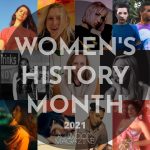
Connect to Atwood Magazine on
Facebook, Twitter, Instagram
Discover new music on Atwood Magazine
:: Atwood Magazine Celebrates Women ::
 follow our Women’s History Month playlist on Spotify
follow our Women’s History Month playlist on Spotify 

